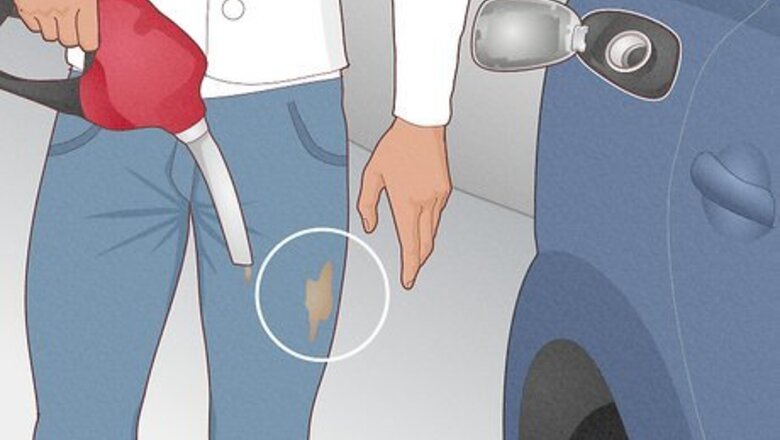
views
Gas spill
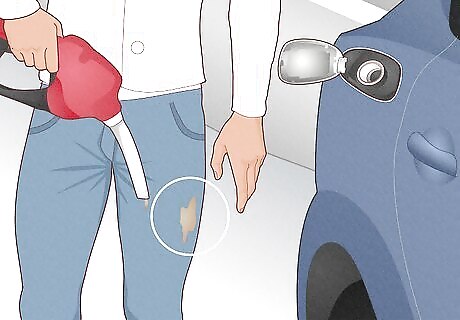
If you just filled up the gas tank, it’s possible that you got a few drops of gas on your clothing and that’s why you smell it in the car now. Alternatively, you may have simply driven through a gas puddle or picked up some gas fumes on your shirt when you got back into your car. How serious is this: Not very. So long as the gas odor goes away, you’re fine. Checking to see if this is the problem: Just lower the windows and turn the air on. Cost to fix this issue: None.
Missing or loose gas cap
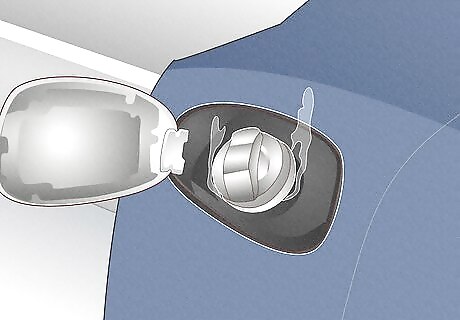
If your gas cap isn’t secure or it’s missing entirely, gas fumes will waft out of the gas tank and enter your cabin. This is also an issue because the extra air coming into your tank can enter your fuel lines. This can alter the air-fuel mixture in your engine and lead to engine underperformance. How serious is this: Usually, it’s not a huge deal. But if the check engine light pops on, you’ve got too much air in your engine and it can lead to unnecessary wear and tear. Checking to see if this is the problem: Try opening and closing the gas cap to see if the problem goes away. If it doesn’t, try swapping out your gas cap. Cost to fix this issue: A new gas cap should only run you $5-15.
Damaged oil cap or O-ring
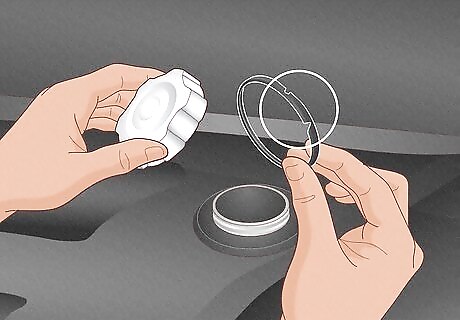
The oil cap is located on top of your engine. If that cap is loose, damaged, or the O-ring inside of the cap is worn down, the oil in your engine may be able to leak out. That oil will burn off in the engine bay and you’ll smell it in your vehicle. You may also smell gas because the engine won’t be able to combust properly without the proper oil levels. How serious is this: It’s not good to drive with an oil leak because oil is flammable. You could end up with an engine fire if you don’t address this one. Checking to see if this is the problem: With the car cold, wipe the closed cap with a dry cloth to remove any residue. Then, turn the car on for 1 minute before shutting it off again. If you see any liquid or bubbles around the cap, it’s not sealed correctly. Cost to fix this issue: A new oil cap will cost $5-15.
Loose or faulty spark plug
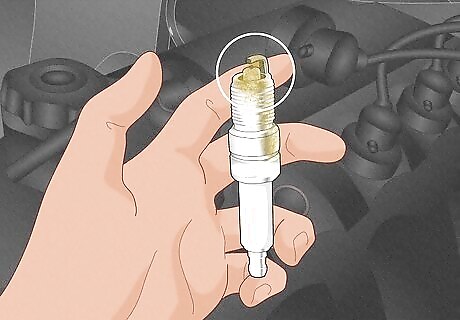
Your spark plugs provide the spark in the “gas + air + spark” equation your engine uses to produce power. There’s one spark plug inside of each cylinder in your engine, and if one of them is loose or fails to work, all of the gas won’t be combusted. The leftover gas will create fumes that end up leaking into your cabin. How serious is this: So long as the engine runs, you’re okay to drive short distances. You may do serious damage to your engine if you ignore this problem, though. Checking to see if this is the problem: If you see a check engine light, you’re experiencing engine misfires, your engine is making more noise than it normally does, and you experience worse engine performance than normal, it’s likely your spark plugs. Cost to fix this issue: See a mechanic to have your spark plugs inspected and replaced as needed.
Gas leak
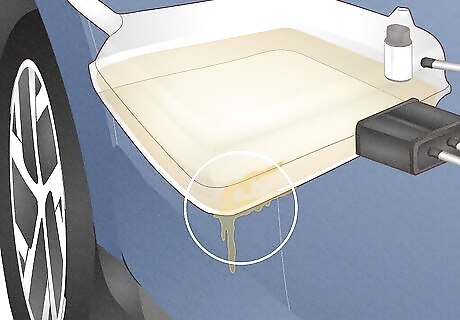
The gas lines in your system are supposed to be closed loops, but they can crack or leak over time just like any component in your vehicle. Perhaps your fuel tank has spurred a leak, or maybe one of the fuel lines got punctured when you hit a bump. Whatever the case, a leaky gas line will cause a gas odor in your vehicle. How serious is this: It depends on how bad the leak is and where it is located. Because there’s no real way to know where it is (the leak may burn before anything spills to the ground), it’s best to avoid driving. Checking to see if this is the problem: See a mechanic to have the tank drained and the lines inspected for leaks. Cost to fix this issue: It really depends on where the leak is and what needs to be replaced. A small line leak may only cost $150, while replacing the entire tank and system could run up to $2,000.
Exhaust leak
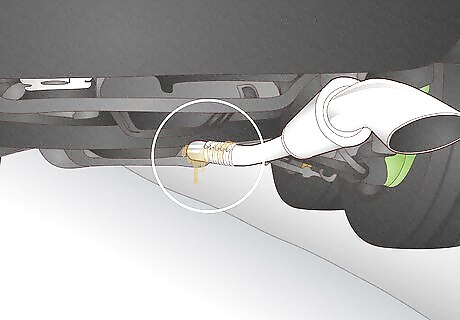
Your exhaust system is a series of pipes, connectors, and sensors that work together to safely get rid of the exhaust fumes your engine generates when it burns gas. If there’s a leak somewhere in that exhaust system, you may smell gas (probably alongside the smell of sulfur). How serious is this: An exhaust leak means your vehicle is leaking noxious fumes into the environment. If it can get you from point A to point B drive it to the mechanic, but don’t ignore this one. Checking to see if this is the problem: If your check engine light is on, your exhaust is louder than normal, you get worse gas mileage than normal, and your vehicle vibrates or rattles, you’ve likely got a problem with an exhaust leak. Cost to fix this issue: If there’s a single sensor that needs to be replaced, it may only cost $50-100. The priciest fix here is probably a new catalytic converter, which can run up to $3,000.
Faulty fuel pressure regulator

The fuel pressure regulator is responsible for maintaining the proper fuel pressure inside of the fuel rail, where the gas feeds into each cylinder. If that regulator is failing or malfunctioning, it may end up injecting more fuel than the engine actually needs. All of that excess fuel will cause gas odors to build up in your vehicle. How serious is this: You should not drive if the regulator isn’t working. You may be flooding your engine and that excess gas is an environmental and fire risk. Checking to see if this is the problem: Symptoms the regulator is failing include rough idling, black smoke, misfires, an engine that won’t turn over, sputtering, and stalling. Cost to fix this issue: If you have an older vehicle with a mechanical regulator, this may only cost $150-200. Newer electrical regulators can run up to $1,000.
Older vehicle
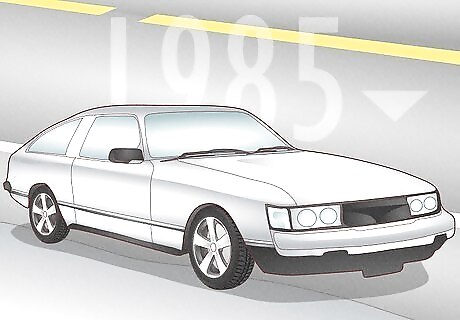
Vehicles made before 1985 or so almost always lacked a fuel injector (they had carburetors instead). As a result, starting the engine involved injecting a steady burst of gas while cranking it. This leads to a little bit of excess gas in the engine when it’s starting, which results in some gas smells. How serious is this: It’s not. This is 100% normal. Checking to see if this is the problem: If the gas smell goes away after the vehicle is running for a few minutes and the car is on the older side, it’s just the vehicle’s age. Cost to fix this issue: There’s nothing to fix here.
















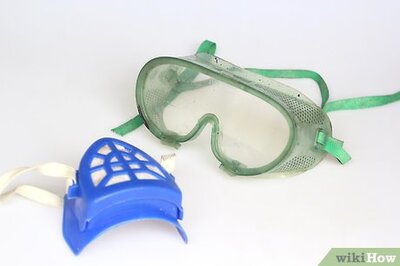



Comments
0 comment